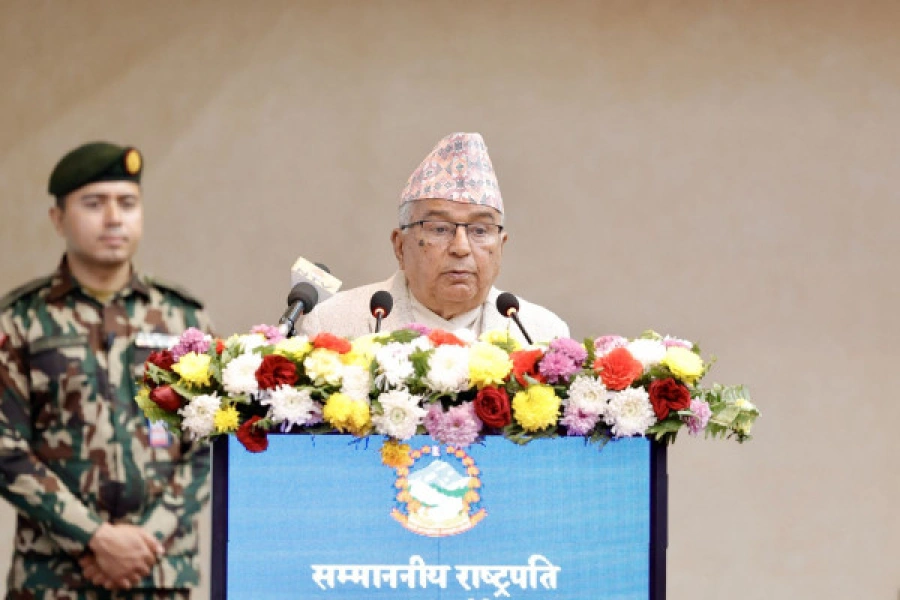The debate over the adequacy of mathematical models in political science highlights the necessity for a comprehensive understanding of political processes.
For quite some time now, I have found myself at the intersection of two disciplines—economics and political science—that, while inherently interconnected, often seem to operate in silos. My friends, upon hearing about my latest academic pursuits, have often responded with disbelief. “You’ve got to be kidding me, Anuvishub,” they say, incredulous at my attempts to merge the rigour of econometrics with the complexities of political theory. As I delve deeper into this hybrid realm, I find the moniker of “economist” suits me well, even if it sometimes comes at the cost of clarity. Recently, I attempted to write a paper that explored political phenomena through an econometric lens. The feedback I received from my friend Nivan—a seasoned econometrician—was both scathing and enlightening. “Too much maths; you must be brain dead by now,” he remarked when I sent him my manuscript for review. Yet isn’t this the hallmark of an economist’s work? To construct arguments so intricate that they baffle even the most astute minds? It is a peculiar source of pride, indeed.
This column is, in many ways, a response to the critique I have faced, and it emerges from the broader debate on the relationship between economics and political science—a discussion that has intensified in recent years. Daniel W. Drezner, in a thought-provoking piece for The Washington Post, posits that political science has been striving to emulate the mathematical methodologies of economics. While I appreciate his insight, I believe he overlooks a critical element: the encroachment of economic methodologies into political inquiry, a trend that has significant implications for both fields.
The Intertwining of Economics and Political Thought
To understand the current dynamics, we must consider the historical context. From the time of Adam Smith until the mid-nineteenth century, the lines separating economic and political thought were blurred. Prominent thinkers of the era, such as David Hume and John Stuart Mill, approached social questions with a unified perspective, employing primarily verbal arguments imbued with normative concerns. It was a time when the analysis of political behaviour and economic systems were one and the same, rooted in the broader inquiry into human welfare and societal organisation.
The mid-nineteenth century marked a turning point. William S. Jevons, in his seminal work “The Theory of Political Economy” (1871), championed the idea that economics could—and should—be grounded in mathematical analysis. Jevons asserted that “their profession can be adequately presented only on a mathematical foundation.” This declaration set the stage for a paradigm shift, one in which quantitative methods became the gold standard for economic inquiry. Jevons contended that “all economic authors must be mathematical,” foreshadowing the contemporary trend of quantitative analysis dominating the field. This evolution presented a paradox: Political economy—the study of the interactions between economic systems and political institutions—was increasingly relegated to the realm of the abstract. Concepts such as utility, desire, and welfare, once central to the discourse, became secondary to mathematical precision. The very essence of political inquiry, rooted in normative analysis, was at risk of being overshadowed by the demands of quantitative methodologies.
Nepal’s Swikriti Acharya wins International Mathematical Olympi...

For nearly seventy years, economics and political science maintained separate institutional identities.cPolitical scientists largely abstained from incorporating economic methodologies into their analyses, while economists refrained from exploring the political dimensions of their models. This divide persisted until the 1960s, when a significant shift began to take place. Economists started to adopt a new perspective, viewing voters as rational maximisers and politicians as entrepreneurial actors operating within a market-like environment. This marked the beginning of an era in which the principles of supply and demand were applied to the study of political behaviour. The economic framework became a tool for analysing elections, legislative processes, and public policy, with the promise of greater predictability and analytical depth.
In his influential work, “Impact of Economics on Contemporary Political Science”(1990), David Miller argued that the influence of economics on political science was profound and far-reaching. He contended that economics had shaped the trajectory of political inquiry more than any other social science discipline. This assertion underscored the burgeoning sub-discipline that sought to differentiate itself from traditional political theory, embracing rational choice modelling and analytical methods derived from economics.
New Paradigm
Today, we witness an increasing number of economists contributing to leading political science journals, while political scientists are publishing in prestigious economic outlets. This cross-pollination of ideas has resulted in a collaborative effort that transcends disciplinary boundaries, enabling researchers to engage with complex social issues through a multifaceted lens. However, this blending of methodologies is not without its challenges. As economic frameworks infiltrate political science, the quest for predictability can sometimes resemble a power game—one where the complexities of human behaviour are reduced to mere numbers and equations. While this approach provides valuable insights into rational political behaviour, it risks oversimplifying the intricate dynamics that underpin political processes. Nevertheless, it is undeniable that economics remains one of the most politically influential fields within the social sciences, and crucially, economists significantly shape the worldview of non-economists.
The assumptions that underpin many economic models—often grounded in the ceteris paribus condition—fail to capture the nuanced realities of political life. All the economic methodology calculations and models concern political and human behavioural phenomena and are built on the assumption (ceteris paribus) of the political ‘P’ factor [Invisible hand] and other various variables/factors. For instance, the assumption that voters act solely in their self-interest does not account for the myriad of factors that influence political decision-making, such as social identity, cultural values, and historical context. Indeed, the inadequacies of purely economic models have prompted political scientists to challenge their validity, striving to develop alternative frameworks that better reflect the complexities of human behaviour.
In his 1976 paper published in the Journal of the American Statistical Association, George Box famously stated, “All models are wrong, but some are useful.” This sentiment encapsulates the ongoing tension between economics and political science. While mathematical models can provide useful insights, they are ultimately limited by their assumptions and simplifications. Mainstream political scientists have expressed dissatisfaction with economic explanations for phenomena such as voting patterns or coalition formations. The oversimplification inherent in economic models often leads to outcomes that do not align with observed behaviours. This discontent has sparked a healthy dialectical process within the discipline, as scholars seek to reconcile the insights of economics with the complexities of political reality.
Moreover, as economics grapples with non-market behaviours exhibited by voters, legislators, and bureaucrats, it is compelled to reevaluate foundational concepts such as rationality, incentives, and equilibrium. The integration of behavioural economics into the mainstream is a testament to this shift, highlighting the need for a more nuanced understanding of human decision-making. As the global political landscape continues to evolve, the role of political science in social development remains paramount. Yet, it has not received the encouragement it deserves. As Stephen Walt observed in 2004, “policymakers are often less interested in explaining a general tendency than in figuring out how to overcome it.” This pragmatic approach underscores the necessity for political scientists to engage with the mathematical models that economists wield so adeptly. Indeed, they love figures and data, and we create them notoriously and influence them by number because the numeric ‘1’ is just a figure among all the ‘00000…’ behind them….
Political science's involvement with modelling is complex and multifaceted. As the discipline embraces mathematical tools, it must also acknowledge the limitations of these approaches. The increasing trend towards data-driven analysis raises critical questions about the nature of political inquiry: What does it mean to understand political processes in an era dominated by quantitative metrics?
Mathematical Cult
The notion of a “Mathematical Cult” within political science is not entirely new. The emergence of the Society for Political Methodology, spearheaded by scholars like Christopher H. Achen and John Jackson, marked a significant turning point in the discipline. This society enforced high standards for methodological rigour while allowing for complex mathematical models that were once viewed with scepticism. Over the decades, political scientists have developed methodological innovations that are now at the cutting edge of applied statistical work. A possible downside is that individuals trained in state-of-the-art political science methods can often find more attractive employment outside political science, either in more methodologically friendly academic departments or in industry. Meanwhile, mainstream political science would complain that by saying too much maths, no one will understand it—rendering the discipline inaccessible, while economists have continued to reply, ‘live with it like we do’. In this context, the challenge becomes clear: How can political science cultivate a methodological approach that balances mathematical rigour with the qualitative insights necessary to understand political behaviour?
The debate over the adequacy of mathematical models in political science highlights the necessity for a comprehensive understanding of political processes. Rigorous theory must specify the relationships between relevant parameters while acknowledging the inherent complexities of human behaviour. As economists would often note, while mathematics provides a powerful language for analysis, it does not encompass the entirety of social inquiry, as it is vastly described as a language more than an equation to sum up evidence. The rise of data science—a blend of statistics, machine learning, data manipulation, and visualisation—offers an alternative pathway for political scientists seeking to navigate the complexities of contemporary political life.
The question of priority in political science remains pertinent: should political scientists emphasise visualisation, or is it imperative to ground their analyses in a comprehensive understanding of both frequentist and Bayesian statistics? The answer likely lies in a synthesis of the two approaches. While visualisation undoubtedly aids comprehension, a robust statistical foundation is essential for effectively navigating the complexities of political behaviour.
Reflecting on my own academic journey, I acknowledge the significance of engaging in this ongoing discourse. I’d initially like to pen a notorious paper on ‘political methodology’ one day. The relationship between economics and political science is intricate, characterised by both collaboration and contention. Ultimately, a productive dialogue between these disciplines can illuminate the complex dynamics of power and governance in an increasingly intricate world. As we traverse this evolving landscape, we must remain receptive to insights from both quantitative and qualitative methodologies, recognising that neither can fully encapsulate the richness of human experience. Understanding the interplay between economics and political science will not only enhance our academic pursuits but also improve our capacity to engage with pressing contemporary issues.




































